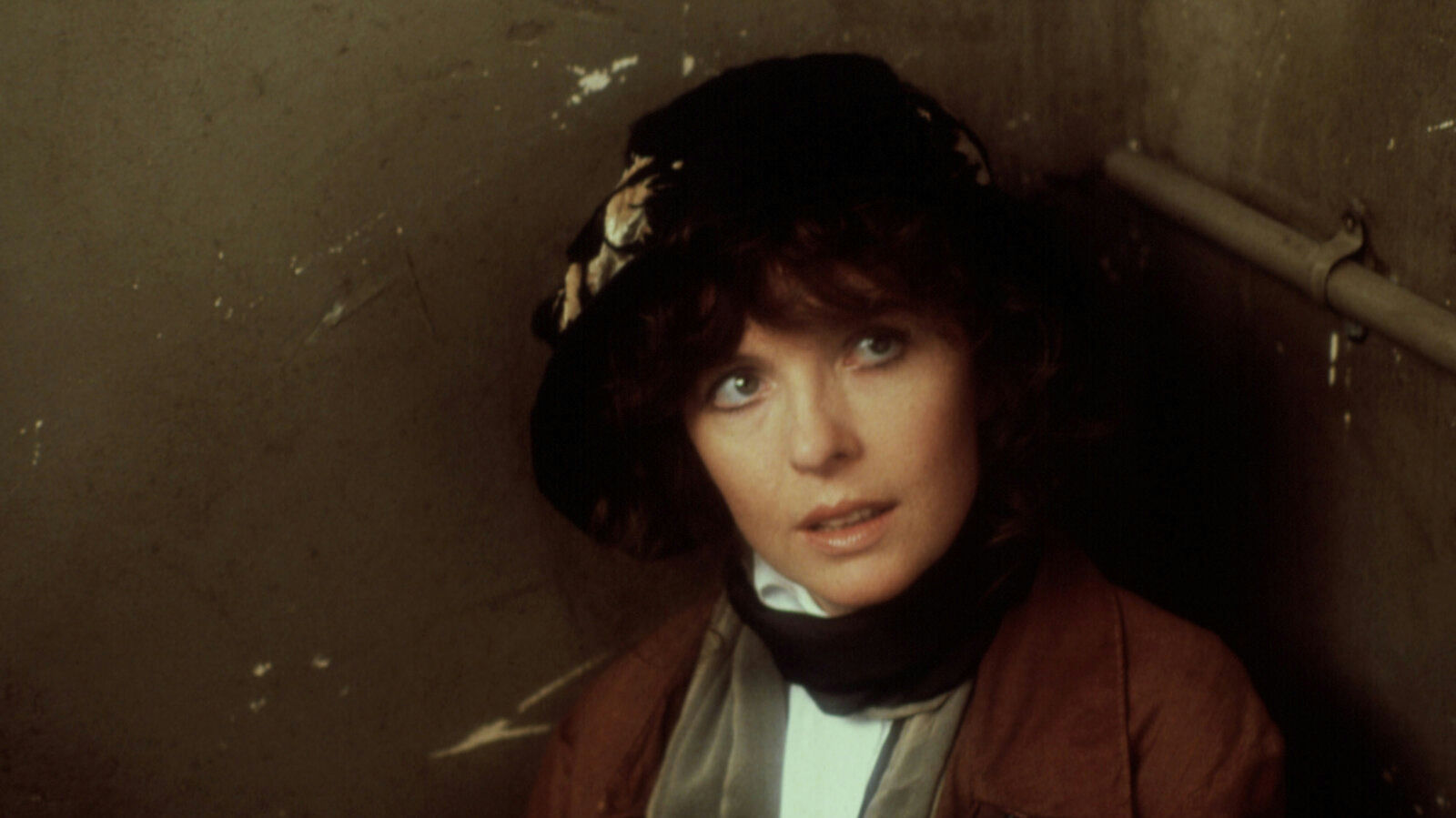Gena Rowlands Rocked These Iconic Performances
.png)
Salute to Gena Rowlands, a true movie icon who passed away at 94 on August 14, leaving behind a legacy of raw and intense performances that elevated the art.
Known for her dramatic and impassioned performances, Rowlands earned two best actress nominations from the Academy, first for her lead role in “A Woman Under the Influence” (1974) as an insecure woman on the edge of a nervous breakdown and later for her role as a gangster’s girlfriend on the run with an orphan in “Gloria” (1980).
If there has ever been a time to bear witness, spread the word, and show respect to Rowlands, it’s now. Every hair-raising gesture, every movement all her own, every nerve and muscle in her body that went into every single one of her performances — her soul is there. These are ten of Rowlands’s most essential roles and no doubt some of the finest, most transformative acting you’re ever likely to bear witness to.
Faces (1968)

The first of Rowlands and Cassavetes’s major collaborations together, Faces is a disheveled piece of indie cinema that introduced the themes that would define the rest of the couple’s work together: love, marriage, alcohol, and the politics between men and women. While only a flitting presence here, Rowlands’s tertiary character, a sex worker named Jeannie Rapp, is by far the most memorable part of the film. Cassavetes’s twitchy handheld camera searches restlessly around each scene before settling on Rowlands’s face. Through the 16-mm. grain, you find something daring and devastating in Rowlands’s eyes. See how long you can stare at them when she says she’s “too old to be lovely,” a single tear hanging from her lashes, before feeling you should look away. Rowlands’s performance in Faces is like a challenge to look at someone’s soul without flinching. It’s proof that she can dominate a film with her face alone — and what a face it is.
Minnie and Moskowitz (1971)

No one in the history of cinema has made sunglasses look as good as Rowlands does in Cassavetes’s dysfunctional screwball comedy Minnie and Moskowitz. While practically every man she encounters in the film — including her shithead boyfriend, Moskowitz (Seymour Cassel) —berates her, manhandles her, and physically assaults her to varying degrees, Rowlands carries herself with rhapsodic grace, staring coolly beneath her octagonal Linda Farrows — until she can no longer maintain that composure.
Here, Rowlands plays a Los Angeles County Museum of Art curator who watches romance films and gets wine-drunk at night, then has her cinematic delusions of love shattered by day.
“Movies are a conspiracy,” she says motionlessly. It’s with the arrival of Moskowitz that the film then takes a turn toward the erratic.
Together, Rowlands and Cassel deliver one of the most sickeningly overstimulating performances you’re ever likely to see. Minnie and Moskowitz is a drunken ballet of uncontained emotions meted out between two lovers who turn each other into their wildest selves. Moskowitz destroys any sense of Minnie’s restraint, ultimately giving Rowlands free rein to do what she does best: unravel in the most spectacular and disturbing ways.
A Woman Under the Influence (1974)

In her best role, Rowlands plays Mabel Longhetti in A Woman Under the Influence, Cassavetes’s magnum opus and possibly one of the greatest depictions of heterosexual dysfunction ever committed to screen. Every crack in Rowlands’s voice, every earsplitting inflection, every bizarre gesture is a masterstroke of acting genius. Her performance is both wildly operatic and troublingly lifelike, so much so that you can’t help but worry for Rowlands. It’s difficult to believe that her performance isn’t improvised, but no — it’s scripted, studied, and she really is in control of such an unruly character.
Starring — and sparring — alongside Peter Falk, Rowlands’s character is a lower-middle-class mother of three experiencing each day as an unceasing series of crises. She is without a center or a stable sense of self, trying her best to communicate the profound love she feels for her family but rarely reaching them in a language they can understand. She is in a permanent state of tantrum and acts out with a kind of capricious whimsicality, shouting, dancing, grimacing like a child forced to eat vegetables, much to the embarrassment of her blue-collar husband.
After Mabel is admitted to a psychiatric hospital, the film’s tone turns from droll to a straight-up horror show. The disputes between Rowlands and Falk are so unsettlingly real they feel as though they’re happening in your own home. Watching it is like witnessing a terrible miracle.
Opening Night (1977)

Rowlands and Cassavetes’s seventh film together calls into question the borders between fiction and reality as well as the humiliating treatment of female actresses. In Opening Night, Rowlands plays Myrtle Gordon, a seasoned actress struggling to connect with her latest Broadway role: a middle-aged woman unable to accept her lost youth. At every turn, Myrtle resists her director and co-stars’ — including Cassavetes, who plays her husband, Maurice — perceptions and expectations of her, instead choosing to forge her own drunken, wild, maniacal path. She goes off-kilter completely when she’s told that her character will be slapped onstage. She walks off and appears at the play’s titular opening-night blind drunk. Here, we see Rowlands at her most vaudevillian, each of her movements highly unpredictable and ticlike. She meets intense theatricality with stinging naturalism, doing what only Rowlands could: turning farce into something incredibly disturbing and severe.
Gloria (1980)
.png)
Cassavetes’s most conventional and least characteristic film also sees Rowlands stepping out of her typically intimate style. Playing the titular character, a middle-aged, childless moll, she saves a 6-year-old boy (John Adames) from the clutches of the mobsters who killed his family, spending the rest of the film fleeing them.
Gloria was a screenplay Cassavetes sold to Universal to help fund his more experimental films. While he initially declined to direct, Rowlands demanded that he reconsider once she’d been cast as the film’s lead. Cassavetes eventually relented, knowing it would be a favor to his wife — the woman who’d grown up idolizing Bette Davis’s foolhardiness and self-sufficiency — who had long yearned for a role that would tap into her scrappy, tough-guy side.
As Gloria, Rowlands displays a greater sense of exteriority than we’re used to seeing from her, particularly in her inward-driven Cassavetes roles. Clearly written for a big studio, there’s less of a focus on probing monologues or much opportunity for deep character exploration at all. The film is all gun-toting, door-busting, gallivanting action. Any sense of interiority appears only in easily missable flashes. Gloria is really a chance to see Rowlands’s physicality displayed at large: the way she hunches over the mob bosses like a goblin, the way she strides, the way she holds a gun better than even Dirty Harry could.
Love Streams (1984)

Hardly seen at the time of its quiet release, Love Streams became a lost relic before the Criterion Collection rescued it from obscurity in 2014, releasing it on to Blu-ray for the first time. Love Streams was possibly Cassavetes’s greatest treatise on his philosophy of love and altogether one of Rowlands’s most complex performances. Bouncing off each other in emotional chaos, here the couple play brother and sister in what would ultimately be their final film together. Sick with cirrhosis of the liver, Cassavetes was told he’d have six months to live shortly before he began work on the film (a diagnosis he did not reveal to anyone else at the time; he went on to live another five years).
Here, Rowlands plays Sarah Lawson, a self-effacing love addict with no sense of self beyond her relation to others. Cassavetes plays Robert Harmon, a writer living in his own individualistic world who confronts his sister with her own lack of self. “What is creativity, Robert? Is cooking an art? Is love an art?” Sarah asks him, her hand gestures as delicate as Tai Chi’s. As in several other of her roles under Cassavetes, Rowlands’s character goes to farcical lengths to prove her own personhood. She takes herself on a solo bowling date, brings home a menagerie of farm animals, visits a joke shop, and tries desperately — and unsuccessfully — to make her ex-husband and daughter laugh with a clown nose, chattering teeth, and googly eyes. Like all Cassavetes films, Love Streams asks what two people who are desperate for love to the point of insanity can truly give each other. What happens when lines become tangled and communication breaks down entirely? And as is also typical of Cassavetes, Love Streams presents love and alcohol as two sides of the same coin: a destabilizing force that utterly undoes anyone under its influence (not unlike Rowlands herself).
The Notebook (2004)

Rowlands’s performance in The Notebook as a woman living with Alzheimer’s now carries a sharp sense of tragedy. Nick Cassavetes, her son and the director of the film, recently announced to Entertainment Weekly that she has been living with the disease for the past five years. Rowlands’s mother had suffered with it, too, an experience that made it almost impossible for Rowlands to accept the role of Allie Hamilton in The Notebook.
“If Nick hadn’t directed the film, I don’t think I would have gone for it — it’s just too hard.” she told O, the Oprah Magazine in 2004.
But whether it was her husband or son, Rowlands always delivered her best performances while under the instruction of the people she loved. Her son was by then more familiar with his mother’s acting than just about anyone else had been, having spent his childhood tripping over camera wires in the family home, where John Cassavetes shot most of his later films. Although The Notebook, an adaptation of Nicholas Sparks’s mawkish beach read, isn’t exactly the groundbreaking cinema commonly associated with the late Cassavetes, Rowlands plays Allie with the same courage she brought to any of her husband’s productions. She even adds an element of horror to an otherwise play-it-by-numbers romance, her moans of impatience and pain so ugly and animal that it’s difficult to get them out of your head. What was once just uncomfortable to watch is now heartbreaking.
Read More https://www.vulture.com/article/gena-rowlands-best-movie-performances.html




%402x.svg)